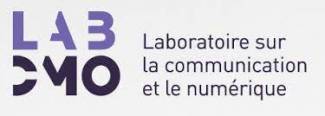context
The massive production of data by individuals, companies, institutions and technical devices constitutes what is called the process of “datafication”, or the “putting into data” of society. Social networks, mobile applications and tracking, in particular for marketing purposes, are used in this massive collection which is now an integral part of our lives. The movement for the opening of data, advocating their access and reuse by citizens, also contributes to the central role that is assigned to data, whether public or private, in contemporary society. Initiatives in this direction include the deployment of platforms and applications in the field of health, as well as interventions in terms of data activism, aimed at challenging data regimes that are unfavorable to certain social groups.
Led by a team of researchers and students from the LabCMO under the direction of Florence Millerand at UQAM, the Datafication research project focuses on the sociopolitical issues related to this phenomenon of putting society into data. The aim is to understand the production and use of public and private data by questioning the imagined audiences about the actual audiences of the data, in three different contexts:
- The opening of data to the public (through the case of a municipal project carried out in Montreal);
- Voluntary contribution of personal health data by users of a provincial sustainable health platform;
- And the production of data as part of an activist project (through the case of a group of data analysts working for the community).
Objectifs
This event aims to share reflections and work on the “putting into data” of society. It also aims to present the preliminary results of the Datafication project. It also invites external researchers to discuss their own work and analyzes and comment Datafication project results.


